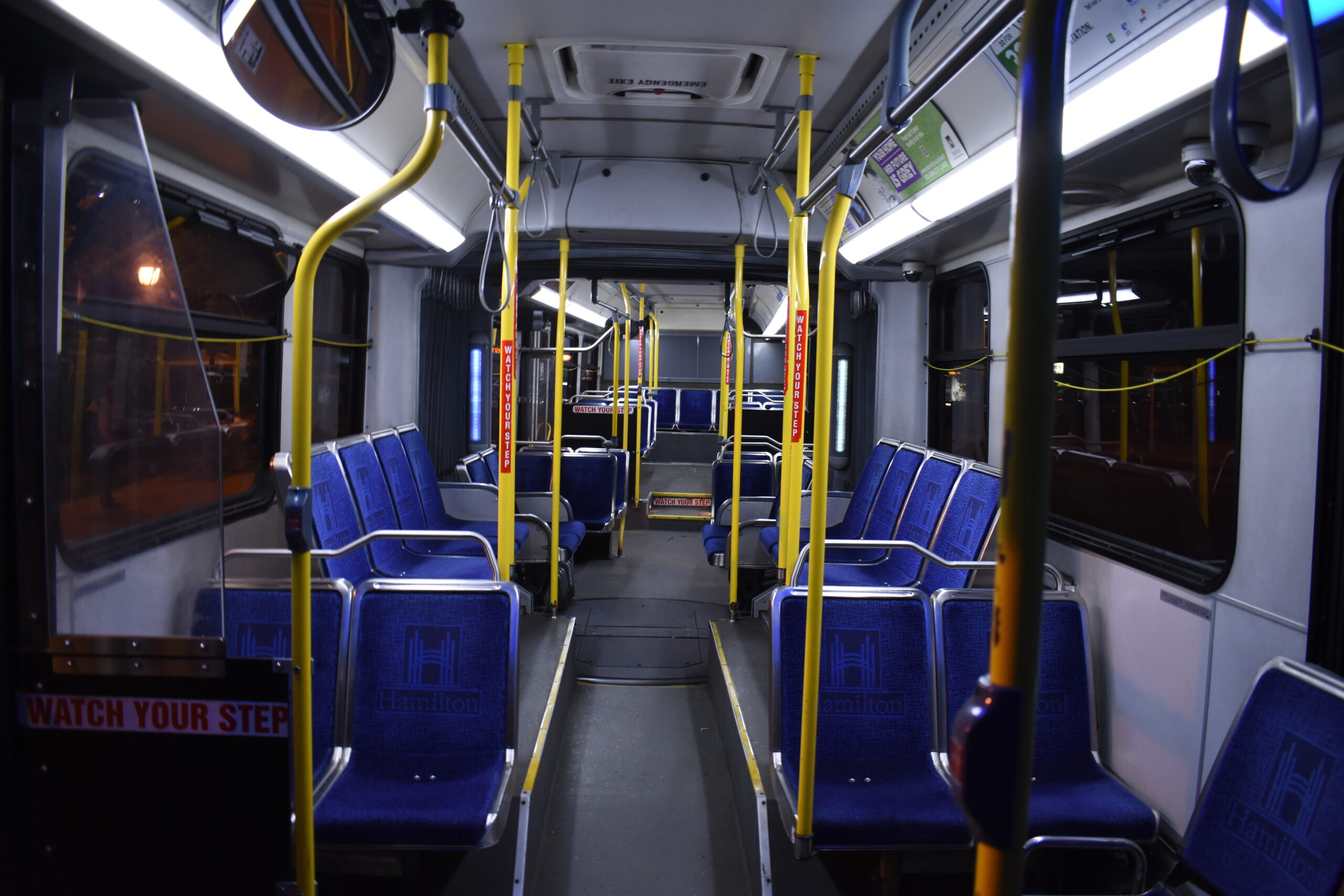The Public Record has learned that Hamilton City Council will decide next week if they will continue charging Hamilton Street Railway UPass fees to Hamilton’s post-secondary students at McMaster University, Mohawk College, and Redeemer University during current the COVID-19 closure of campuses.
City Council is taking a break from meetings this week, the matter was originally to be dealt during the now cancelled May 6 Council meeting.
TPR started the City asking about the UPass fee on April 28, receiving the response below on May 4.
“We have been in touch with the program partners and are reviewing the agreements”, Jasmine Graham, Senior Communications Officer for the City of Hamilton wrote. “Given timing for the re-start of the school year and the format it may take (online, etc.) are not certain, we are still working out the details. At this time, we anticipate to have an update within the coming weeks.”
The UPasses account for approximately 17% of the HSR’s revenue at over $7-million per year.
For McMaster students, the fee during the 2020/21 academic year will be $223.92 for a 12-month HSR pass. Mohawk students will pay $105.93 for each semester of four months. Redeemer students pay $193.74 for an eight month pass.
TPR has been unable to confirm if Mohawk is collecting the summer UPass fee, or awaiting a decision by Hamilton City Council.
TPR does not know if Council will be considering a refund to McMaster students for summer HSR fees they’ve already paid, nor if Council will consider pro-rated refunds for the final six weeks of winter term when campuses were closed.
The associations representing students at McMaster, and Mohawk, responded with non-committal statements to questions regarding their positions on the UPass fee during campus closures.
“What I can say at this time is the MSU is watching closely as the situation evolves”, wrote McMaster Student Union President Giancarlo Da-Ré. “We’ll work with our partners in the best interests of McMaster students. I will gladly share more with you when I can”.
“We value our partnership with the HSR and the City of Hamilton”, wrote Mohawk Student Association President Garrett Blair. “The decision to offer free transportation starting in March was a show of solidarity and a sign of good faith from the city. We are confident that this partnership will continue to serve our students well, as we continue to navigate the challenges posed to students and the rest of the community together”.
Redeemer University Student Senate President Samuel Vandeputte wrote “Although I do not have a perfect sense of the position of the student body, it does, generally, seem that there may need to be a possibility for some compensation for the loss of usage in the hypothetical scenario that Redeemer does not run in-person courses during the start of the 2020-21 school year.”
The present contracts between the City of Hamilton and various student associations are amended versions of the original 1995 agreement signed between the McMaster Students Union and then-Region of Hamilton-Wentworth.
It does not distinguish between physical and online classes; nor has there been a need to. Where student courses were already online, such as Introduction to Psychology, the course tutorials meet in-person on campus.
Thus, as written, the contract requires all students to pay the fee if enrolled in full-time studies.
Which brings us to a legal doctrine you will hear often in the coming months, frustration of contract. Blakes, Cassels & Graydon LLP’s summary is informative reading “Frustration applies as a matter of law where, through no fault of the parties, an unforeseen event renders performance of the contract radically different from what the parties had bargained for”.
Nobody bargained for campus closures, social distancing limited bus capacity, and full-time enrolment being entirely online.
The UPass is the first of likely many contracts Council will have to determine how to respond to frustrations caused by COVID-19.
Production Details v. 1.0.0 First published: May 5, 2020 Last edited: May 5, 2020 Author: Joey Coleman Edit Record v. 1.0.0 original version

